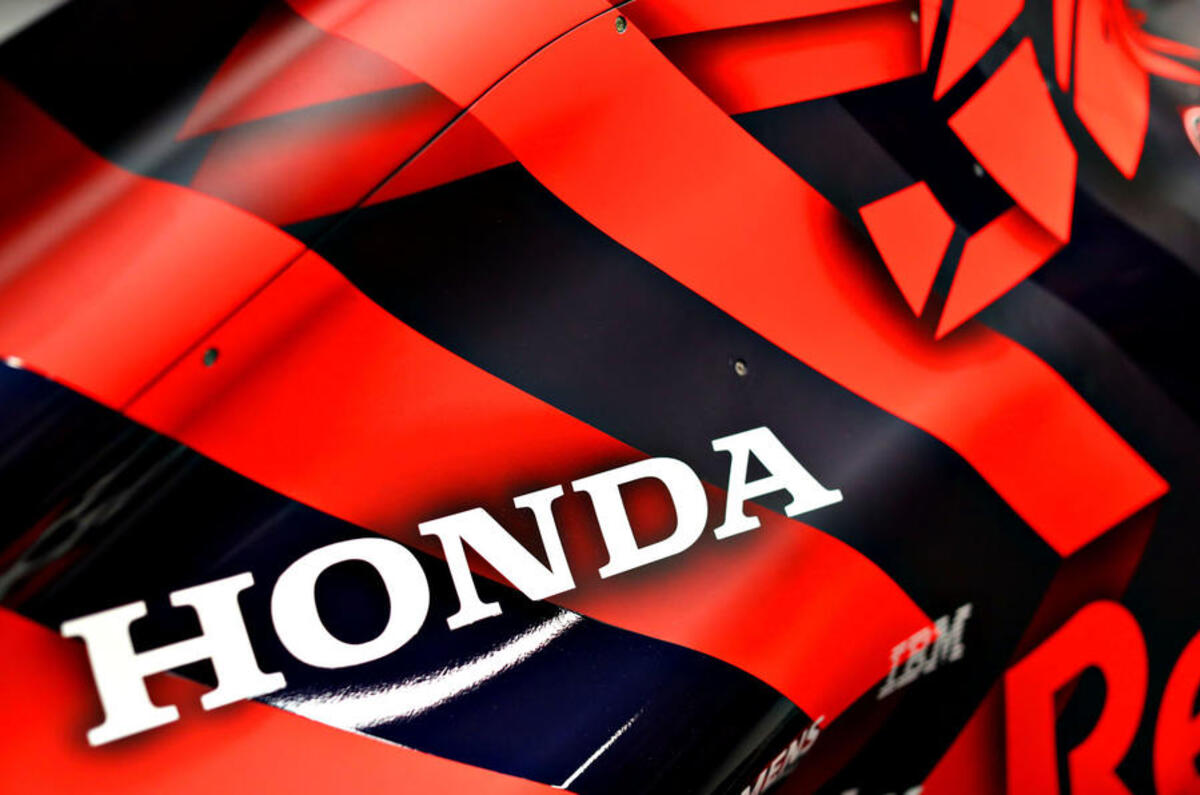Honda will quit Formula 1 at the end of next season, citing the need to focus its resources and spending on the development of battery electric and hydrogen fuel cell technology.
The shocking news means that Red Bull Racing and AlphaTauri – the only two teams other than Mercedes-AMG to score race wins so far in 2020 – will be looking for a new engine supplier for the 2022 season.
The Japanese firm returned to F1 as an engine supplier in 2015 with McLaren. That relationship ended after three tough seasons, with Honda spending a year supplying Toro Rosso (now AlphaTauri), before starting to supply Red Bull as well from 2019. Honda has scored five wins in the past two seasons.
But the firm will now quit the sport at the end of the 2021 season, the final year of the current technical regulations. Noting that the car industry is undergoing a “once-in-100-years period of great transformation”, Honda said it “has decided to strive for the ‘realisation of carbon neutrality by 2050’.”
It added: “Towards this end, Honda needs to funnel its corporate resources in research and development into the areas of future power unit and energy technologies, including fuel cell vehicles and battery EV technologies, which will be the core of carbon-free technologies.”
Honda recently launched its first electric car, thHonda E E supermini, and added that the learnings it has made developing the 1.6-litre hybrid powertrain used in F1 will benefit its new Innovative Research Excellent, Power Unit and Energy centre.
The news will be a major blow to Red Bull and its AlphaTauri junior team, with major questions over a future engine partner. Honda’s withdrawal leaves just Mercedes-AMG, Ferrari and Renault as F1 engine manufacturers.
Mercedes-AMG would be unlikely to be keen on supplying engines to its closest current rival, while Ferrari would likely want to focus its efforts on its works team.
Red Bull achieved its greatest success using Renault engines, with the partnership dominating the sport from 2010 until 2013. But the relationship grew fractious in its final years, with Renault feeling its contribution to the success wasn’t appreciated.
Red Bull team boss Christian Horner said that the team “understand and respect the reasoning” behind Honda’s decision. He said: “Their decision presents obvious challenges for us as a team, but we have been here before, and with our strength in depth, we are well prepared and equipped to respond effectively, as we have proven in the past.”














Join the debate
Add your comment
F1 past it's prime
I used to watch every race and attend at least 2 races a year, 25 years ago. Now days, I maybe watch the highlights if I really have nothing else to watch on Netflix/Prime. It's increasingly irrelevant and F1 boss, Chase Carey, has a media background not racing or engineering so again what is his plan for it? Based on the last few years I'd rather we have electric AI cars. That would be interesting to see how fast they can go and overtake without the limitations of a human on board. (And Autocar, it's crazy how my comments get red flagged for spam if I use quote marks but these bots can post google work from home ads all day long)
The right decision
Honda put themselves to shame with dubious reliability, a great shame for a Japanese nanufacturer. Too much money was invested in negative promotion. Alternative investment in carbon free cars is appropriately done for a good cause. some say (according to Jeremy Clarkson phrase), for a good excuse.
I suppose the only thing in
I suppose the only thing in it for Honda was reinforcing their reputation for engineering and particularly reliability, wasn't that why Red Bull fell out with Renault, the engines were too unreliable? Honda were not 100% to start with but rapidly improved and are now as you would expect from a Honda engine, superb engineering.